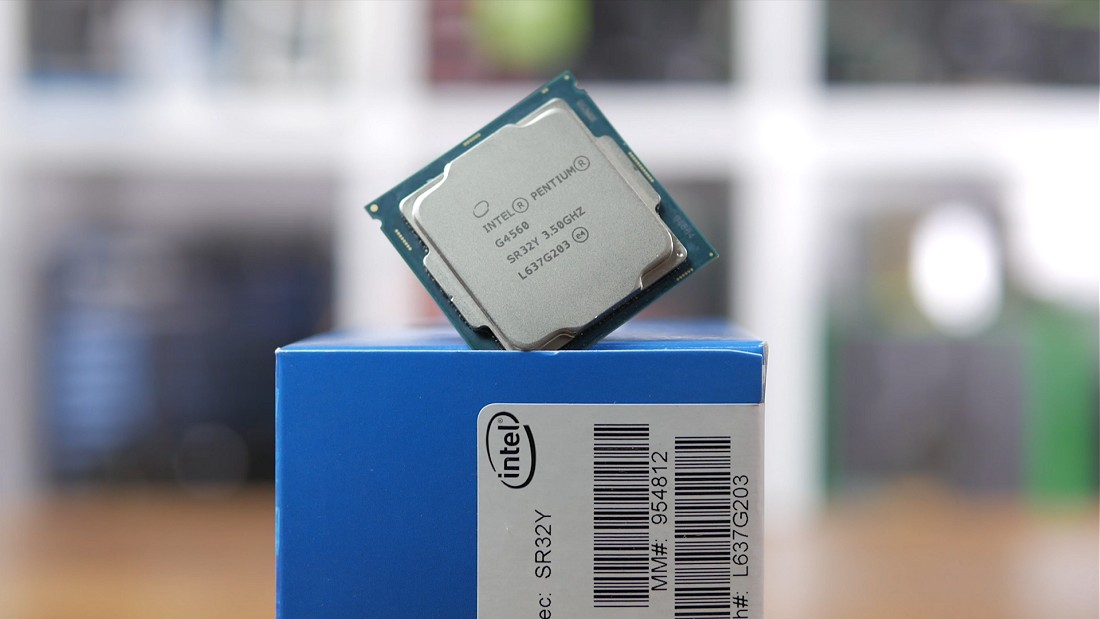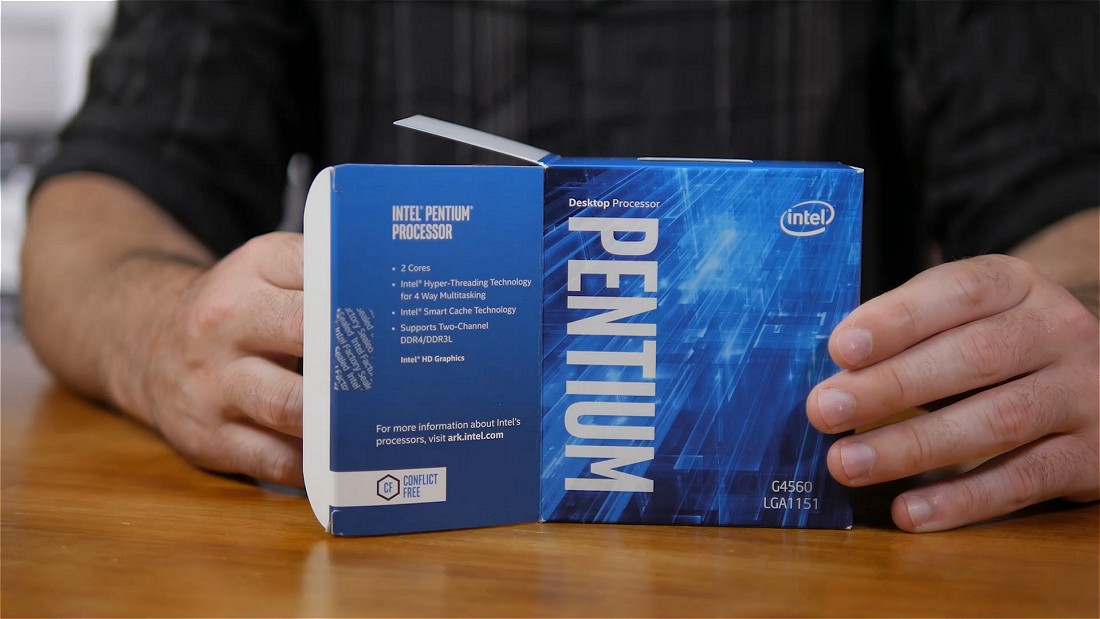In an epic dual-core vs. eight-core battle, we put the Core i3-6100 up against the aging AMD FX-8320E in late 2015 and although the latter looked like a certain victor on paper, the Skylake chip proved to be the better overall package.
It's already been 14 months since we published that article and the Core i3-6100 has indeed become an extremely popular choice among budget builders thanks to its low $120 cost. But what if I told you a similar level of processing power could be bought today for half the price?
As far as enthusiasts were concerned, Intel's Kaby Lake processors looked like a bust when they launched last month. Besides some new motherboards, the seventh-generation Core i7-7700K and i5-7600K didn't bring much to the table.
However, to everyone's surprise, Intel made a considerable change to its latest Pentium parts. Ever since the original Core-based Pentiums (the 65nm 'Allendale' and 'Conroe' models) the range has been comprised of dual-core chips with two threads, that is to say they forgo Hyper-Threading support.
Things have been that way for 10 years, so we were a little confused and plenty excited to see that the new Kaby Lake Pentiums have two cores with Hyper-Threading. That essentially makes them Core i3s, the only difference being that the Pentium models are clocked a bit lower and use the base 3MB L3 cache.
Set at 3.5GHz, the base model Pentium G4560 is only 200MHz slower than the much loved Core i3-6100, which technically means it can't be more than 5% slower. That's amazing news for budget shoppers who had their eye on something like the i3-6100 because the G4560 has been stamped with an MSRP of only $64.
Poised to be the bargain CPU of 2017 – or at least until AMD's Ryzen – let's run the Pentium G4560 through our typical battery of benchmarks to see how it performs against pricier Kaby Lake chips as well as some previous-gen parts.
Synthetic Benchmarks
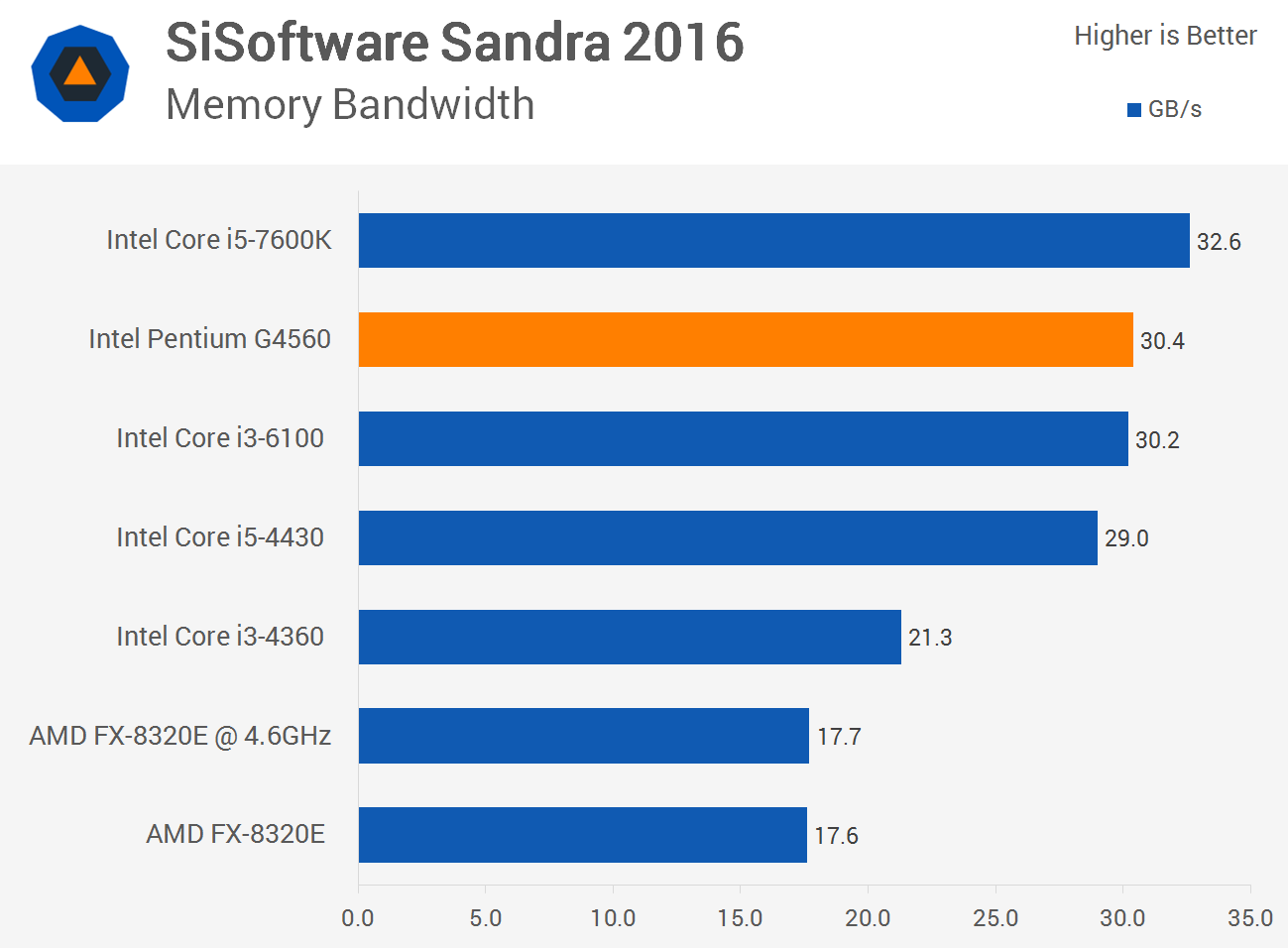
Both the Core i3-6100 and G4560 were tested with DDR4-3000 memory for a fair comparison with other Skylake and Kaby Lake processors. Technically, on a non-Z motherboard the G4560 can only be paired with DDR4-2400 memory but we have found this has a minimal impact on performance for these lower-end processors.
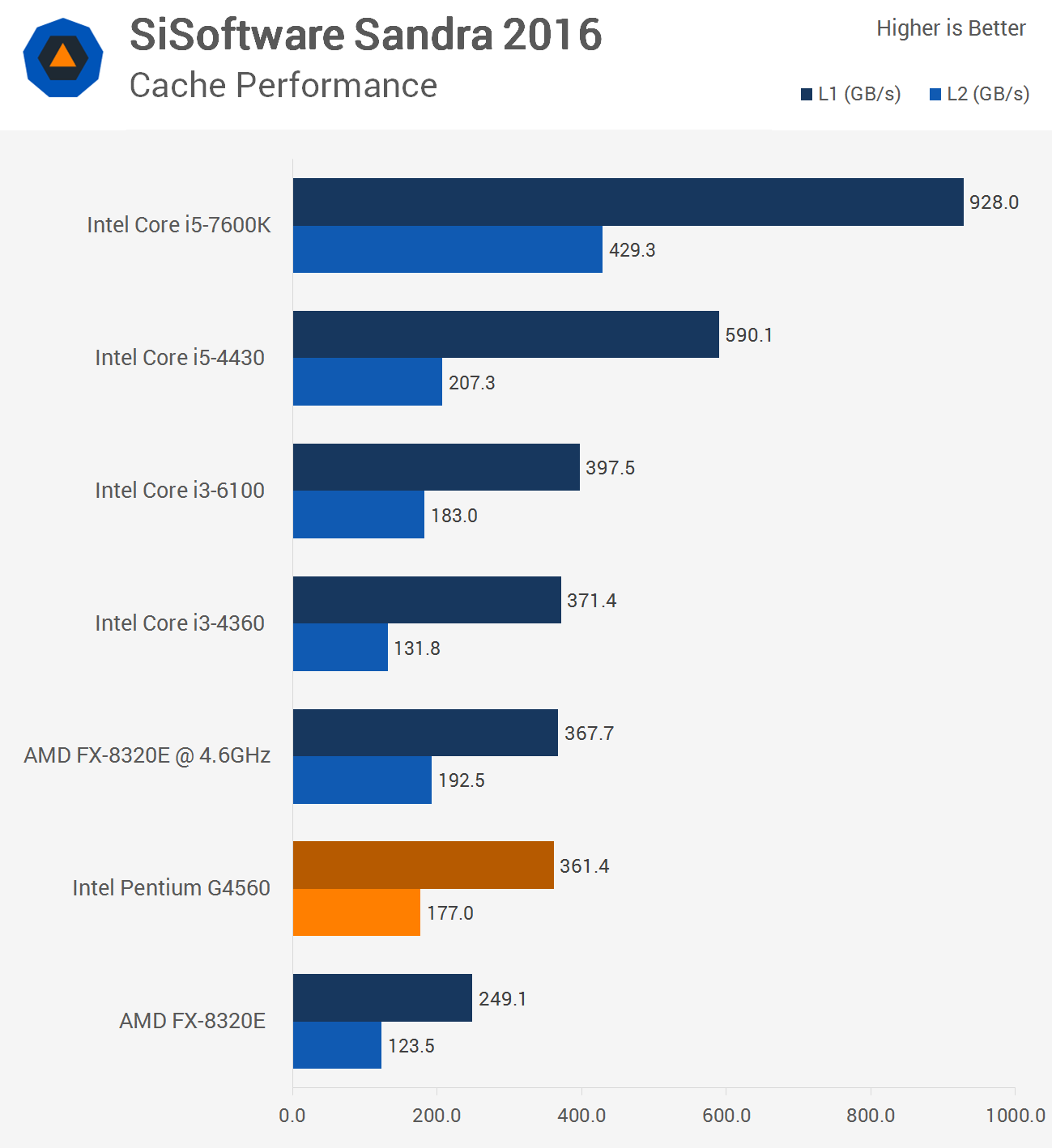
The L1 and L2 cache performance aren't impacted by the DDR memory speed and here we see that the Pentium G4560 is on par with a heavily overclocked AMD FX 8-core processor.
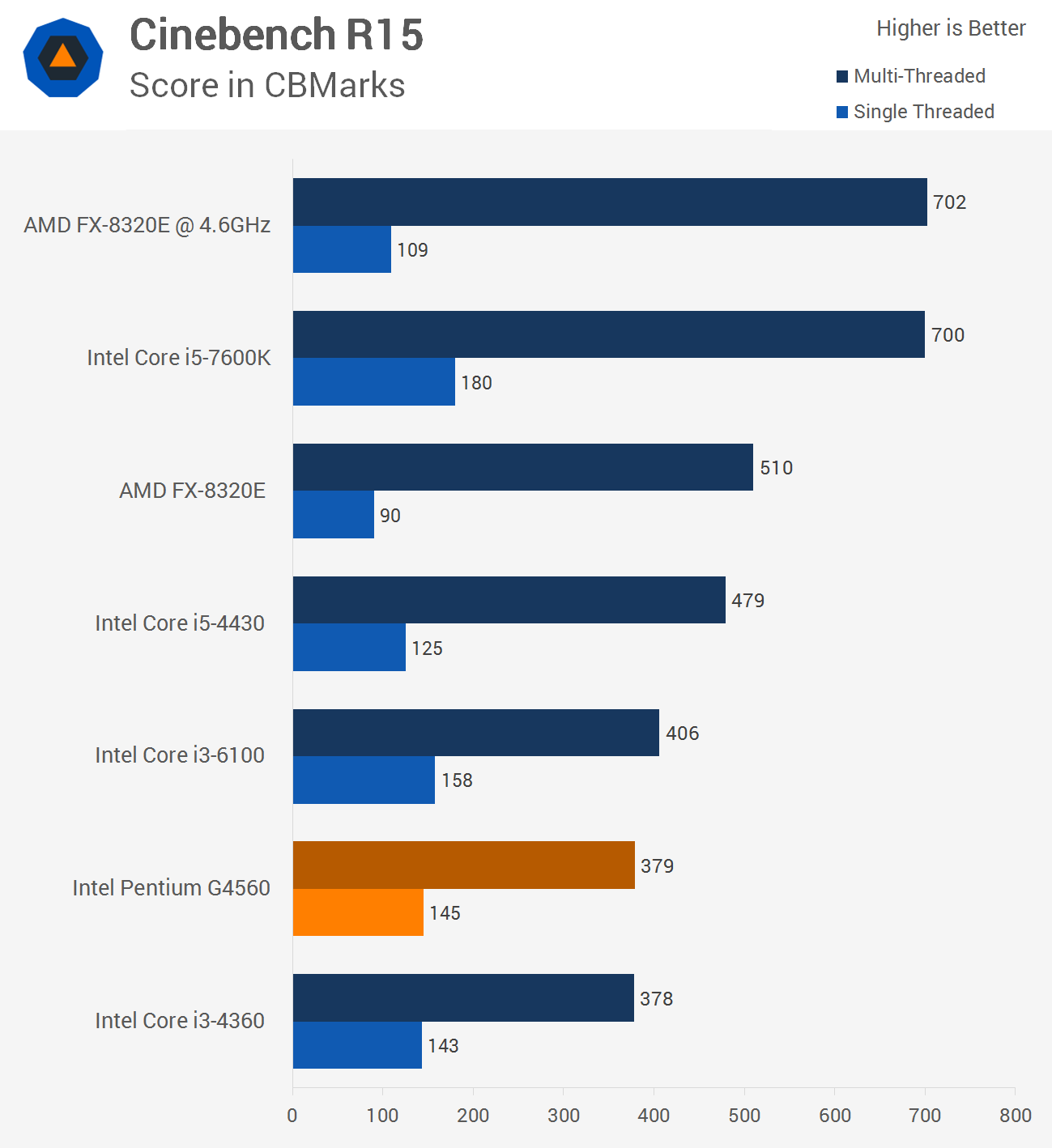
Cinebench R15 shows us that the G4560 is on par with the fourth-generation Core i3-4360 while it's slightly slower than the Core i3-6100.

